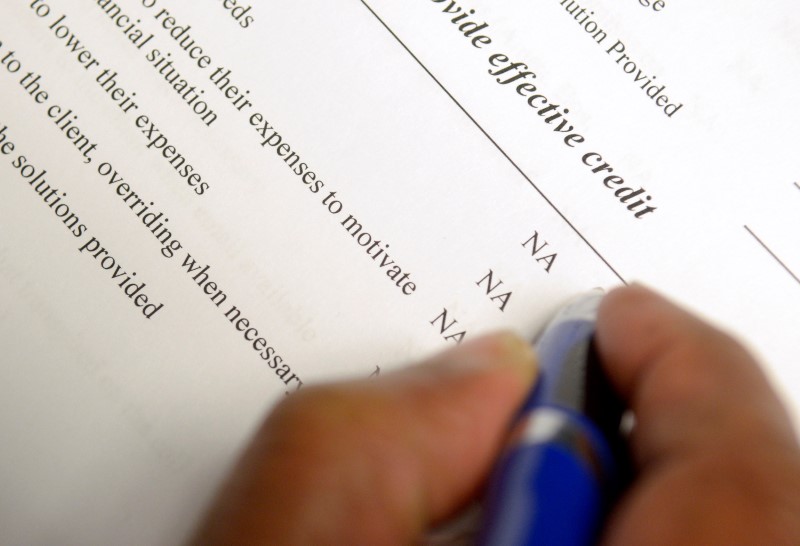By Chris Taylor
NEW YORK (Reuters) - Most people think of debt as a temporary condition: Something you accumulate early in life, chip away at during prime earnings years, and say good riddance to well before retirement.
But what if your debt is permanent?
Then you might feel like Annette Loos, a 57-year-old mom from Kansas City, Missouri who has around $20,000 in student debt that she pays a bit of every month. Even though she has a good job as a project manager in the banking industry, her debt from her college days just sticks around.
"I joke that it will be written on my gravestone, 'She is still paying her student loans,' " says Loos, who earned her degree in 1984. "It's depressing because it never seems to go away."
Loos is not alone. A new study from Northwestern Mutual shows that 14 percent of people surveyed expect that their debts will last for the duration of their lives.
Seen in that sense, debt takes on a darker hue. It is no longer a useful tool that can help secure a college degree, or buy a first home. Instead, life can start to feel like a Dickensian "debtor's prison," waking and working just in order to pay more interest.
It is common knowledge that Americans are struggling under the pressure of debt. In fact, in the first quarter of 2017, total U.S. consumer debt reached $12.7 trillion, according to the Federal Reserve Bank of New York. This new peak surpassed the previous record reached back in 2008. Student loan debt alone has now hit an astonishing $1.3 trillion.
On a household level, Northwestern Mutual's new 2017 Planning and Progress Survey reveals the extreme degree of what is taking place. The average dollar amount owed by those in debt, excluding mortgages, totals a staggering $37,300. One in 10 people owe over $100,000. And 20 percent of people spend between a quarter and a half of their entire income just on servicing debt payments.
But do not despair. There are strategies and tools to dig out from the burden of debt:
TAKE MASSIVE, EARLY ACTION
That is the one piece of advice Annette Loos would give her younger self. "If I had to do it all over again, I would try to hurry and pay it all right away," Loos says.
Once the debt has been accumulated and the interest starts kicking in, the horse has left the barn. Do whatever you can to reduce your initial amount - choose a more affordable college, work part-time during the school year, or live with your folks for a while.
DISTINGUISH GOOD DEBT FROM BAD
Separate out the different types of debt on your balance sheet and figure out which ones you can live with and which you cannot.
For example, a mortgage with interest fixed at a low rate can reap big tax benefits by deducting the interest, and at the same time paying down principal towards ownership of a (hopefully) growing asset. That is not the type of debt you need to be obsessed with paying down early, suggests Rebekah Barsch, Northwestern Mutual's vice president of planning.
But high-interest credit-card debt, or private educational loans with steep rates which cannot be discharged in bankruptcy, are another story altogether. This type of debt can trap you in a cycle of never being able to catch up. Prioritize clearing those debts first.
WRITE DOWN A PLAN
That act alone will boost your mindset, Barsch notes. The Northwestern Mutual survey found that 4 in 10 Americans with debt called those bills a looming source of anxiety. But when you figure out a way forward, "that anxiety drops," Barsch says, even if the timeline for payoff still involves many years ahead.
As part of that plan, do not assume you will be able to suck equity out of your home with cash-out refinancing, advises financial planner Scot Stark of Freeland, Maryland. Counting on that kind of last ditch effort is exactly what trapped people back when the last housing bubble burst.
An effective payoff plan involves minimizing current spending, too. If not, you will never get ahead.
Yet 17 percent of Americans admit that making minimum payments is exactly what they do every month, according to the Northwestern Mutual survey. That is one way to guarantee perma-debt.
"It's sad," says Loos about the years of repayments that lie ahead. "But I'm not the only one."

(The writer is a Reuters contributor. The opinions expressed are his own.)